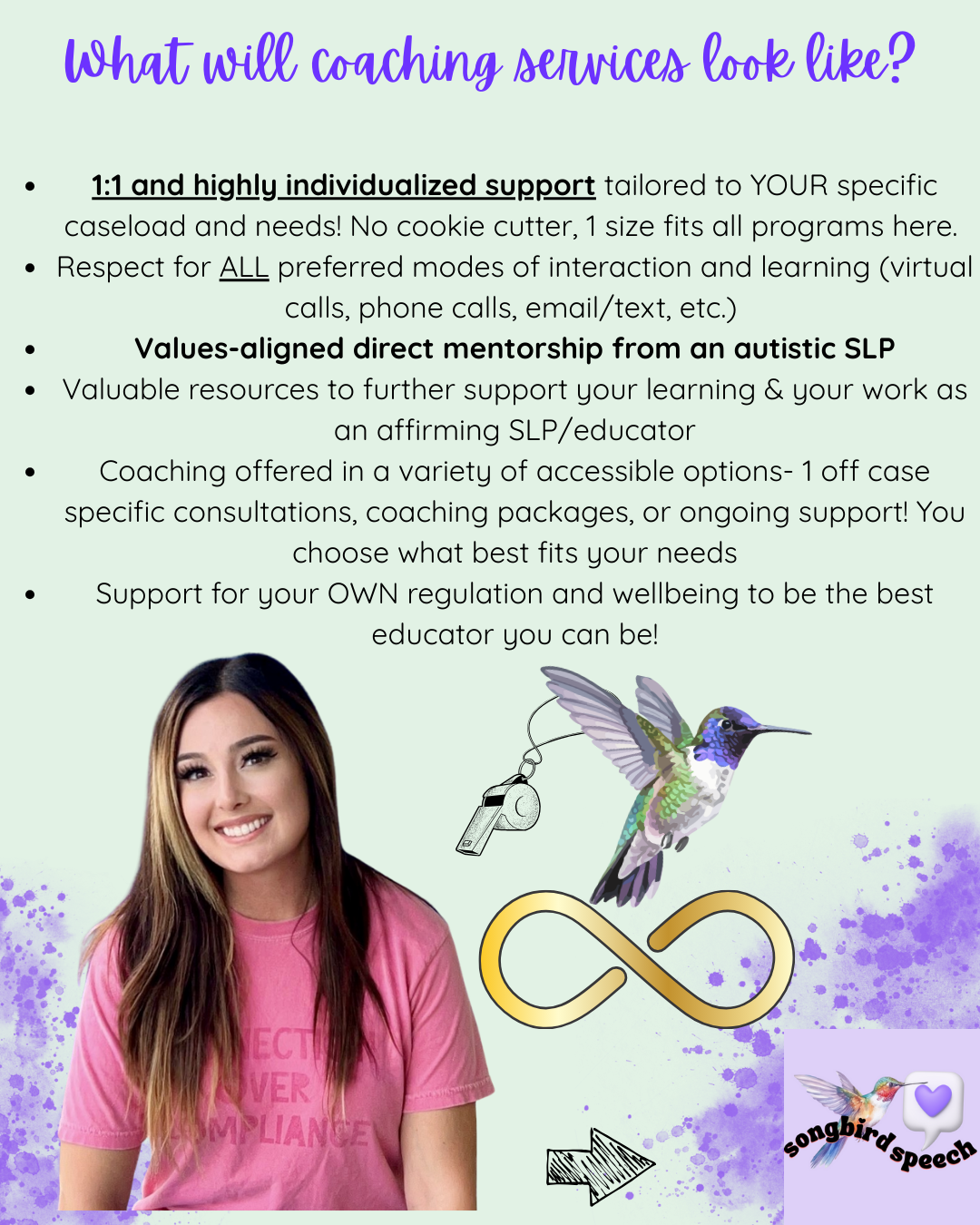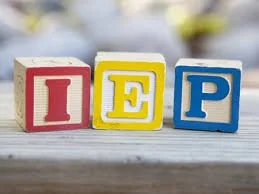Songbird’s Services
Los Servicios de Songbird
Our Approach - Nuestro Enfoque de la Terapia
Songbird Speech understands that autism is a neurotype and a valid way of being human. As a neurodiversity-affirming practice, we honor each child's unique interests, sensory needs, and play styles while building communication skills. Our speech therapy sessions are child-led and centered around play, including:
Motor movement activities
Regulating sensory activities
Special interest focused activities
Games and toy play
___________________________________
Songbird Speech entiende que el autismo es un neurotipo y una forma válida de ser humano. Como una práctica de afirmación de la neurodiversidad, honramos los intereses únicos de cada niño, necesidades sensoriales y estilos de juego mientras desarrollamos habilidades de comunicación. Nuestras sesiones de terapia del habla son dirigidas por losniños y se centran en el juego, incluyendo:
Actividades del movimiento
Regulación con actividades sensoriales
Actividades de los interéses especiales de su hijo/a
Juegos y juguetes
NEW! Educator and Clinician Coaching Services!
One of Kierstin’s biggest passions in the field is sharing her knowledge about neurodiversity affirming support and educational experiences with other educators who are eager to DO BETTER in real, impactful ways.
The Songbird Shift: Neurodiversity Affirming Coaching Services for Educators and Clinicians is exactly that - a flexible, individualized mentorship experience rooted in autistic lived experience and over 6 years of clinical expertise!
Coaching sessions can look many, many ways - but here are just some of the topics that Kierstin has expertise in providing support in:
Neurodiversity affirming school-based goal writing
Explaining the importance of gestalt language development to IEP teams
AAC customization and programming support
Bilingual ethical considerations and treatment planning
Child led speech therapy groups
Helping IEP teams to understand the value of child led, play based intervention and universal design for learning
IEP accommodations support
and SO much more!!!!
Stop the constant guess work and overwhelm of trying to make the shift on your own in a broken system. Let Songbird Speech help you!
1 time consultations, consultation packages, and ongoing mentorship available! Email kierstinsongbirdspeech@gmail.com to learn more or schedule coaching today!
Our Specialties
Gestalt Language Processing/Echolalia
Gestalt language processing is a natural way to learn and acquire language, but it is different than the language development style we are more familiar with. MOST autistic children learn language this way - moving from repeating things they hear (song lyrics, catchy phrases, movie lines) to using more original and spontaneous language.
While some children will make their way through the language learning stages with ease, others may get stuck at the early stages of their language development and require unique support. Our goal is to support your child in moving through the stages to move towards using novel, self-generated language!
Early Childhood Bilingual (English/Spanish) Speech & Language Therapy & Parent Coaching
Early childhood (ages 2-5) is our specialty! Songbird offers a combination model of direct therapy and parent coaching to ensure development of the whole child and confidence in supporting speech and language growth for the family. All goals are targeted through PLAY! Ofrecemos este servicio bilingue!
AAC (Alternative & Augmentative Communication)
Children with speech and language needs often benefit from using visual supports in different modalities to support their communication. AAC can look like laminated core/fringe communication boards or high tech speech generating systems such as iPads. Many are wrongfully told that AAC hinders spoken language growth and development, or that if a child can speak they do not need AAC. Research shows that AAC does not negatively affect spoken language development (and in most cases actually supports it!), AND any child for who spoken language access is not always consistent can benefit from AAC! Songbird Speech is proud to help children and families get access to these valuable communication systems, and to support learning and understanding of how to use AAC systems for families/caregivers.
IEP Advocacy, Review & Support
Did you leave your last IEP meeting feeling frustrated? Have you tried reviewing the draft IEP the school sent to feel more prepared for the upcoming meeting, only to feel more lost and confused?
You are not alone. So many parents feel complicated feelings around their child's IEP. You may feel like some of the present levels don't fully capture your child's abilities, or that the goals aren't challenging enough or that the minutes provided are just insufficient, but you're not sure how to approach these topics.
Many parents don't want to seem "difficult" or ungrateful for the hard work of the teachers and therapists on their child's team, so they don't say how they really feel around the IEP table. Some parents don't know what questions to ask in the moment because every meeting feels like information overload. If this sounds familiar, that feeling in your gut is telling you the truth, there has to be a better way.
You are entitled to participate meaningfully in your child's IEP which means having your opinions and concerns fully heard and respected. It also means having the reports and proposed goals and minutes in your hand before the IEP meeting, so you have time to really consider them. Feeling confidence at the IEP table starts with feeling well-informed and knowing you and your child's educational rights.
We can help. No parent should feel like they're alone or in the dark when it comes to their child's IEP. It's never too late to set expectations for clear communication with your team and begin on the path to true collaboration. We will help you practice having these conversations respectfully, and ways that help everyone on the team really feel like a team.








